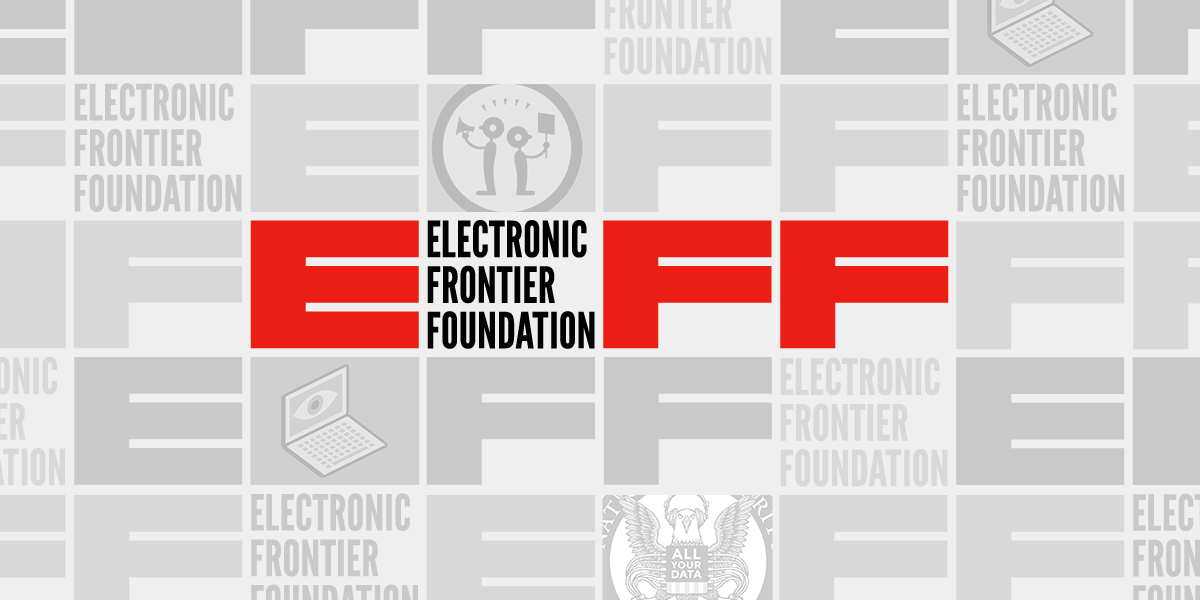
EFF Legal Fellow Josh Srago co-wrote this blog post
The relationship between the federal judiciary and the executive agencies is a complex one. While Congress makes the laws, they can grant the agencies rulemaking authority to interpret the law. So long as the agency’s interpretation of any ambiguous language in the statute is reasonable, the courts will defer to the judgment of the agency.
For broadband access, the courts have deferred to the Federal Communications Commission’s (FCC’s) judgment on the proper classification of broadband services twice in the last several years. In 2015, the Court deferred to the FCC when it classified broadband as Title II in the Open Internet Order. In 2017, it deferred again when broadband internet was reclassified as Title I in the Restoring Internet Freedom Order. A Title II service is subject to strict FCC oversight, rules, and regulations, but a Title I service is not.
Classification of services isn’t the only place where the courts defer to the FCC’s authority. Two Supreme Court decisions – Verizon Communications, Inc. v. Law Offices of Curtis V. Trinko, LLP, and Credit Suisse Securities (USA) LLC v. Billing – have established the precedent that if an industry is overseen by an expert regulatory agency (such as broadband being overseen by the FCC) then the courts will defer to the agency’s judgment on competition policy because the agency has the particular and specific knowledge to make the best determination.
In other words, civil antitrust law has to overcome multiple barriers in applying to broadband providers, potentially denying it as a remedy for monopolization for consumers. EFF's conducted an in-depth analysis on this issue. For a summary, read on.
The Judicial Deference Circle and How It Blocks Antitrust Enforcement Over Broadband
What this creates is circular deferential reasoning. The FCC has the authority to determine whether or not broadband will be subject to strict oversight or subject to no oversight and the courts will defer to the FCC’s determination. If the service is subject to strict rules and regulations, then the FCC has the power to take action if a provider acts in an anti-competitive way. Courts will defer to the FCC’s enforcement powers to ensure that the market is regulated as it sees fit.
However, if the FCC determines that the service should not be subject to the strict rules and regulations of Title II and a monopoly broadband provider acts in an anticompetitive way, the courts will still defer to the FCC’s determination as to whether the bad actor is doing something they should not. If the courts did otherwise, then their determination would be in direct conflict with the regulatory regime established by the FCC to ensure that the market is regulated as it sees fit.
What this means is that individuals and municipalities are left without a legal pathway when a broadband service provider abuses its monopoly powers under our antitrust laws. A complaint can be filed with the FCC regarding the behavior, but how that complaint is handled is subject to the FCC’s decisions, not on whether the conduct is anti-competitive.
A Better Broadband World Under Robust Antitrust Enforcement
The best path forward to resolve this is for Congress to pass legislation that overturns Trinko and Credit Suisse, ensuring that people, or representatives of people such as local governments, can protect their interests and aren’t being taken advantage of by incumbent monopoly broadband providers. But what will that world look like? EFF analyzed that question and theorized how things could improve for consumers. You can read our memo here. As Congress debates reforming antitrust laws with a focus on Big Tech, there are a lot of downstream positive impacts that can stem from such reforms, namely in giving people the ability to sue their broadband monopolist and use the courts to bring in competition.
"can" - Google News
March 06, 2021 at 04:45AM
https://ift.tt/3blMd2J
Why You Can't Sue Your Broadband Monopoly - EFF
"can" - Google News
https://ift.tt/2NE2i6G
https://ift.tt/3d3vX4n
Bagikan Berita Ini














0 Response to "Why You Can't Sue Your Broadband Monopoly - EFF"
Post a Comment